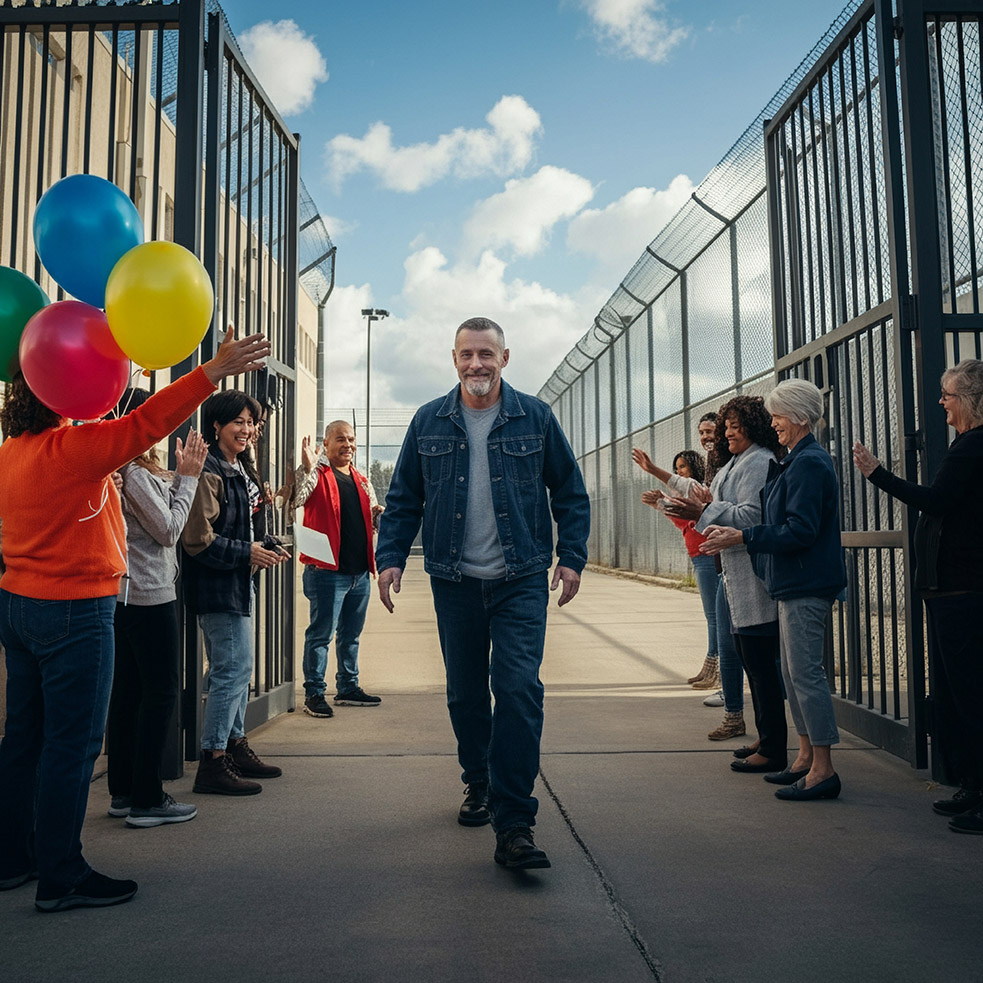Incarceration, while undoubtedly challenging, can also present opportunities for personal growth and self-improvement. Many individuals use this time to reflect, learn new skills, and make meaningful changes in their lives. Here are several ways a person can better themselves while incarcerated, turning a difficult period into one of transformation and positive development.
1. Pursuing Education
Education is one of the most powerful tools for personal growth during incarceration. Many prisons offer educational programs that allow individuals to pursue everything from basic literacy to advanced degrees.
-
Earning a GED or High School Diploma: For those who haven’t completed high school, earning a GED can be the first step toward bettering oneself. Most prisons offer GED preparation courses, and obtaining this credential can improve future employment prospects.
-
Vocational Training: Prisons often provide vocational training in fields such as carpentry, plumbing, electrical work, culinary arts, and more. Gaining these skills can open doors to employment opportunities after release.
-
College Programs: Some facilities partner with local colleges or universities to offer college courses or degree programs. The Second Chance Pell Grant, reinstated in recent years, allows incarcerated individuals to access federal aid for higher education.
-
Self-Education: For those who may not have access to formal programs, prison libraries can be a rich resource. Reading books on a wide range of subjects, from self-help to history to business, allows for self-directed learning and growth.
2. Learning Job Skills
Developing job skills while incarcerated can prepare individuals for reintegration into the workforce. Many correctional facilities offer programs aimed at equipping inmates with employable skills.
-
Apprenticeships: Some prisons offer apprenticeship programs where incarcerated individuals can learn trades through hands-on experience. Apprenticeships in industries like construction, welding, or automotive repair can lead to certifications that improve post-release job prospects.
- Work Opportunities: Many prisons provide opportunities for individuals to work within the facility, whether in food service, maintenance, or manufacturing. While these jobs may not pay well, they teach valuable soft skills like responsibility, teamwork, and time management.

3. Participating in Rehabilitation Programs
Rehabilitation programs are designed to help incarcerated individuals address the behaviors and issues that led to their incarceration, providing a foundation for a better future.
- Substance Abuse Treatment: Many people who are incarcerated struggle with addiction. Substance abuse programs offered in prison can help individuals address these issues through counseling, 12-step programs, or therapy. Tackling addiction while incarcerated is a crucial step toward successful reentry.
- Anger Management and Conflict Resolution: For those who struggle with anger or conflict, learning how to manage these emotions is essential. Many prisons offer anger management or conflict resolution classes, which can lead to healthier relationships and better decision-making.
- Cognitive Behavioral Therapy (CBT): CBT programs focus on changing negative thinking patterns and behaviors that contribute to criminal activity. These programs help individuals develop healthier coping mechanisms and decision-making skills.
4. Building Mental and Emotional Health
Incarceration can take a toll on mental and emotional well-being, but it can also be a time to focus on self-care and healing.
- Therapy and Counseling: Many prisons provide access to mental health professionals, offering therapy or counseling sessions to help inmates cope with past trauma, depression, anxiety, or other mental health concerns. Addressing these issues can foster emotional growth and healing.
- Mindfulness and Meditation: Some prisons offer programs in mindfulness, meditation, or yoga, which can help incarcerated individuals manage stress, reduce anxiety, and develop greater emotional awareness.
- Faith-Based Programs: Many incarcerated individuals find solace and personal growth through faith-based programs, whether through organized religious services, spiritual counseling, or personal study of religious texts.
5. Improving Physical Health
Physical health is often neglected during incarceration, but it can play a significant role in overall well-being. Staying physically active and adopting healthier habits can boost both mental and emotional health.
- Exercise: Many prisons offer access to gyms or outdoor recreation areas. Regular exercise not only improves physical health but also reduces stress, boosts mood, and promotes a sense of routine and discipline.
- Nutrition: While the food provided in prisons is often limited in variety and quality, individuals can make healthier choices by avoiding sugary snacks or processed foods from the commissary. Some prisons also offer nutrition education programs that teach inmates about healthy eating.

6. Developing a Positive Mindset
Adopting a positive mindset while incarcerated can be challenging, but it is crucial for personal growth. A positive outlook helps individuals focus on the future and the steps they can take to improve their lives.
- Setting Goals: Setting both short- and long-term goals helps individuals stay focused on their progress. These goals can be educational, professional, or personal, and achieving them creates a sense of accomplishment.
- Journaling and Self-Reflection: Writing in a journal is a powerful tool for self-reflection and personal growth. Many people in prison find that writing helps them process their emotions, set goals, and track their progress over time.
7. Strengthening Family and Social Connections
Maintaining healthy relationships with family and friends during incarceration is important for emotional support and successful reentry.
- Letter Writing and Phone Calls: Regular communication with loved ones can help strengthen bonds and provide emotional support during incarceration.
- Parenting Programs: For incarcerated parents, many prisons offer parenting classes that teach skills like positive discipline, effective communication, and how to stay connected with children despite physical separation.
8. Preparing for Reentry
Preparing for life after prison is one of the most important steps to take while incarcerated. Reentry programs help individuals develop the skills and plans necessary to transition smoothly back into society.
- Reentry Planning: Some prisons offer formal reentry programs that help individuals create plans for housing, employment, and financial stability after release. This might include resume writing workshops, interview practice, and assistance with finding community resources.
- Mentorship and Support Groups: Participating in mentorship programs or peer support groups can provide incarcerated individuals with guidance and advice as they prepare for reentry. Hearing from others who have successfully reentered society can offer hope and practical strategies.
While incarceration presents significant challenges, it can also be an opportunity for individuals to focus on self-improvement and transformation. By pursuing education, learning job skills, participating in rehabilitation programs, and developing a positive mindset, incarcerated individuals can take meaningful steps toward a better future. Personal growth during incarceration not only helps individuals prepare for reentry but also empowers them to rebuild their lives and make positive contributions to their families and communities.

